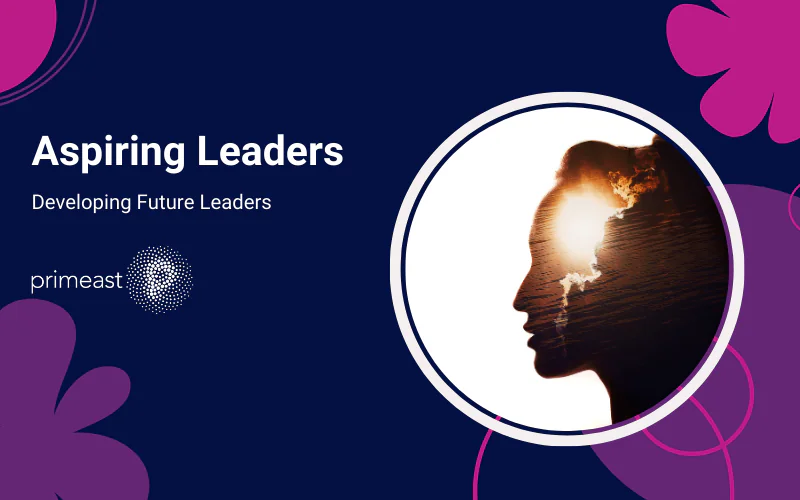Step Beyond Theory
Transform Your Leaders with Primeast Programmes
Traditional training teaches theory. We teach mastery.
Knowing leadership theory is one thing; leading people in real-life situations is another. Humans are unpredictable, diverse, and complex. That’s why theory alone isn’t enough. At Primeast, our tailored leadership development programmes provide a space where leaders practice, fail, and grow. Through experiential ‘think and do’ learning, leaders build confidence in real-world skills like decision-making, communication, and conflict resolution.
Every business is different, so why settle for one-size-fits-all leadership training? Our customised programmes develop leaders at all levels, from emerging talent to senior executives. We align every aspect of training with your organisational goals, so leaders aren’t just prepared for today’s challenges; they’re ready for tomorrow’s, too.
Shape your Leadership Journey
Who Is This Programme For?
Are you ready to step into your full leadership potential? This programme is designed for individuals looking to make a real impact:
- Emerging leaders ready to take the next step.
- Current managers seeking to enhance their skills.
- Senior leaders aiming for greater influence.
- Teams preparing for future leadership roles.
- Anyone leading projects or initiatives.
- Individuals committed to personal growth in leadership.

Expected Outcomes & ROI
The Business Impact of Great Leadership
Stronger Leaders. Greater Impact. Lasting Change.
When leaders thrive, so does your organisation. Leadership development drives measurable results, from stronger decision-making to higher-performing teams. Our experiential programmes go beyond theory, equipping your leaders with the skills and confidence to overcome challenges and seize new opportunities.
- Make Smarter, Faster Decisions: Empower leaders to make strategic calls under pressure.
- Turn Teams Into High-Performing Powerhouses: Leaders inspire, motivate, and drive team success.
- Boost Engagement and Retention: Build a positive, inclusive culture where people want to stay.
- Communicate with Clarity and Confidence: Leaders master collaboration and inspire action.
- Future-Proof Your Organisation: Leaders embrace change and lead through uncertainty.
- Motivate with Measurable Leadership Behaviours: Set clear standards for leadership excellence.
How We Build Bold Leaders
A Smarter, Sharper Approach to Leadership
Leaders don’t need more theory. They need practical, actionable skills. Our leadership development approach goes beyond strategy. We tailor every experience to your unique business context, ensuring your leaders are ready to tackle real-world challenges with confidence.
Through a blend of hands-on learning, real-time feedback, and personal coaching, we help your leaders master the skills they need to lead teams, drive growth, and navigate uncertainty. Our process ensures lasting impact, not just temporary improvement.
On-Demand Expertise in 40+ Countries
Our global network of 120+ associates means you get a team with the right language, cultural understanding, and sector expertise. Wherever your business operates, we’re ready to support you with faster service, better alignment, and smarter solutions.
Seamless Blended Learning for Maximum Impact
What if your training didn’t just teach, it transformed? Our learn@primeast platform creates fully customisable learning experiences for your leaders. From learner tracking to resource curation, we handle everything, so you can focus on what matters most, growth.
Every resource is handpicked for relevance and impact, ensuring your leaders don’t just learn, they lead. From event scheduling to personalised assessments, we deliver a seamless, stress-free experience for you and your team.
Read more here, about our Partnership approach from Consulting, to Design to Delivery.
How We Build Leaders Who Drive Change
Our Proven Process for Transforming Leaders
Developing new skills requires setting clear learning and development goals, practice, reflection, and the opportunity to learn in an environment where we can fail safely. We are more likely to learn effectively when we can ‘think’ and ‘do’, using all of our senses. When designing programmes we create activities which allow participants to explore new skills and knowledge in practice. We then provide opportunities to apply skills back into the workplace which enables us to then measure impact of learning on workplace activities.



















